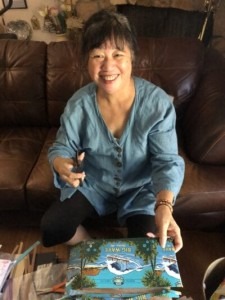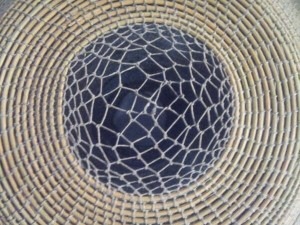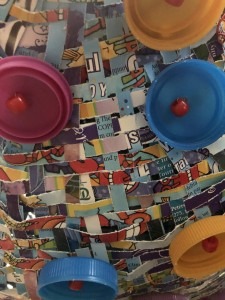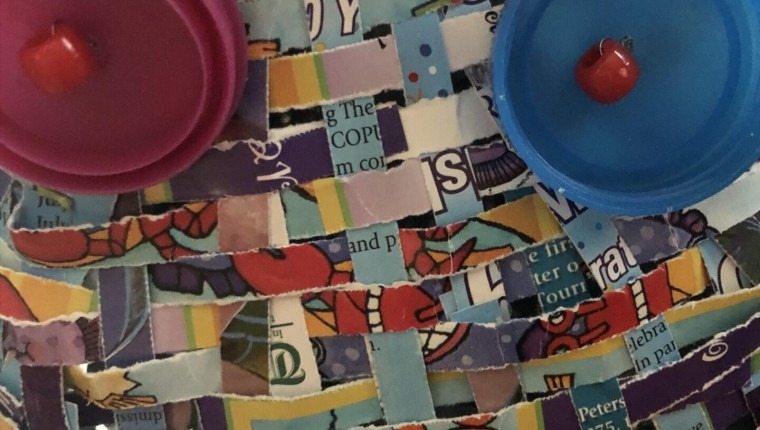Eight. I had started eight of the 41 Covid Comfort Baskets for the proposed series last week. The idea seem worth pursuing, even though I wasn’t certain about the theme of “comfort.”
Making the baskets would keep my hands busy, so I thought. And, it would be a good exercise to see a concept through to produce a body of work. In any case, the basket collection could be my exhibit for the Creative Pinellas show. Or for another Covid-19-related project.
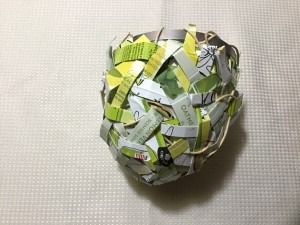
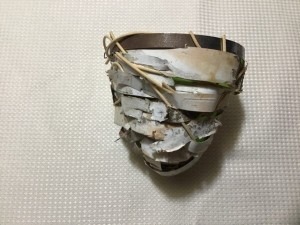
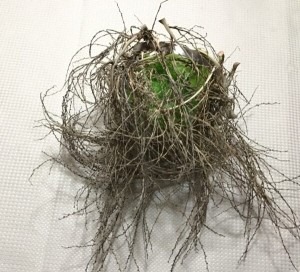
A few days later my Artist Mentor Gabriel Ramos gave me a homework assignment. It turned out to be easy: Watch a few videos of contemporary (3-D) visual artists. It is much harder though to describe my reactions to them.
Like I said in my earlier blogs, writing personally is a challenge for me. Sorry, I’ve been struggling for a few hours. Trying to throw in more transition words per the “blog master” (and, but, so, because), but (oh, here’s one!) I never really used them in my writing!
HOMEWORK
Watching Movies!
Gabriel gave me links to two videos to watch. “Six Artists: The Poetry of Discarded Materials” (I adapted the title for this blog!) followed a group of internationally known artists who uses discarded, everyday materials. In their own voices, they explained why and how they choose their materials.
Fascinating! They all have an obsession with their materials and their work.
Turns out I have something in common. American Artist Tara Donovan uses everyday materials that “are easily accessible, inexpensive and mass-produced.” I choose my weaving materials for the same reasons. Printed paper, more specifically “expired” business rack cards, brochures, holiday and birthday cards destined for the trash can!
LEFTOVERS ARE GOOD
These six – British sculptor Phyllida Barlow (b. 1944), American fabric sculptor and performance artist Nick Cave (b. 1959), American artist Tara Donovan (b.1969), Dutch Designer Piet Hein Eek (b. 1967), American artist Elliott Hundley (b. 1975) and Danish poet, writer and artist Morten Sokilde (b. 1974) – re-used materials. They took leftovers and pieced them back together. They transformed them into something new. Infinite possibilities that are limited by one’s own ideas.
Barlow uses materials from her former sculptures from their experimental stage. Cave searches for “something that has a pulse to it” in thrift stores and flea markets. Donovan uses flexible materials, like straws, to make her magical sculptures. Eek uses scrap wood to make furniture. Hundley uses flotsam, stuff that is washed up on a beach, in his art. And Sokilde finds “things” in the street to construct miniature models.
SMALL BOTTLE CAPS: HUGE WALL SCULPTURES
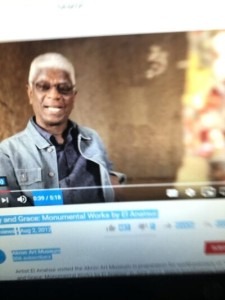
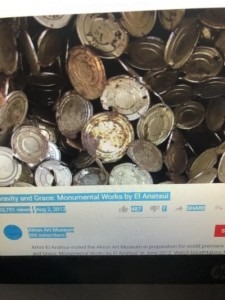
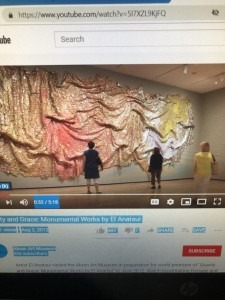
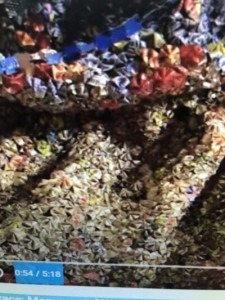
The other video, “El Anatsui: Studio Process/Art21 Extended Play,” followed the internationally acclaimed Nigerian contemporary artist. Coincidentally, I saw his bottle cap art two summers ago on exhibit at the Princeton University Museum of Art. How, I wondered, did he create his huge wall hangings made of bottle caps?
Anatsui’s team of assistants uses wire to connect bottle caps and other odd metal discards and cast-offs to form “blocks.” These small blocks (similar to squares you see in quilting) are then constructed to create patterns and textures. I would describe the result as a huge piece of “fabric.”
What am I thinking now? I’m intrigued and attracted to El Anatsui’s work because I know how he creates. Perhaps, also because there is a similarity between our work. We piece, sew, weave small objects together to create something much bigger.
It takes his team of 25 assistants, each working 60 hours, to complete a piece. My weavings of fiber and paper take hours to complete, too.
I look at the images of his materials and the sculptures; see the similarities and the differences. Anatsui uses metal, wood, clay. I use paper, fiber and plastic.
